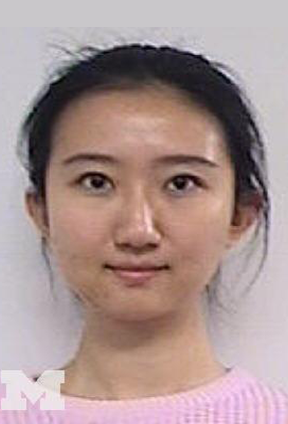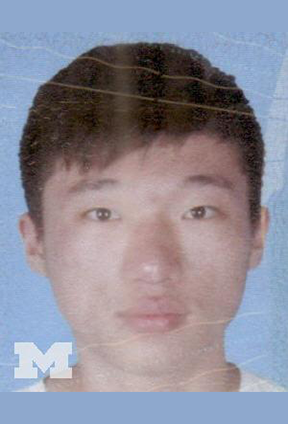Senior PhD Student Research Showcase
April 5, 2024
9:00am - 2:00pm
SPH I, Room 1680
The 2024 Senior PhD student Research Showcase will showcase current research of our PhD students who are graduating this year.

Each of the four sessions scheduled for the Senior PhD Student Research Showcase will feature as many as five PhD candidates delivering 10-minute presentations about their research. The remaining time in each session will be an opportunity for the chair of the session -- each session will be chaired by a departmental postdoctoral researcher -- to facilitate discussions among the presenters and audience members.
EVENT SCHEDULE |
|
|---|---|
| 9:00am - 9:30am |
Breakfast Social |
|
SESSION ONE 9:35am - 10:30am
|
Madeline Abbott Joint longitudinal and survival models for intensive longitudinal data from mobile health studies |
| Mengtong Hu Privacy-enhanced learning and inference with distributed clinical datasets |
|
| Katherine Li Data Integration for Small Domain Estimation and Causal Inference |
|
| Mengbing Li Bayesian Structured Latent Variable Models for Individualized Health |
|
| Yijun Li Computational Analysis and Statistical Methods in Spatial Transcriptomics and Neuroimaging |
|
| 10:30am - 10:45am | Coffee/Refreshment Break |
|
SESSION TWO 10:45am - 11:30am |
Jeffrey Okamoto Statistical methods for causal gene implication in integrative genetic association analysis |
| Zikai Lin Statistical Adjustment of Population Heterogeneity and Generalizability in Neuroscience |
|
| Zhongzhe Ouyang Novel Statistical Methods for Missing Data and Personalized Health Care with Longitudinal Measurements |
|
| Lingfeng Luo Optimization for Large-Scale Time-to-Event Data |
|
|
11:30am - 1:00pm |
Lunch |
|
SESSION THREE 1:00pm-1:55pm
|
Soumik Purkayastha Statistical methods to investigate asymmetric association and directionality in biomedical studies |
| Sidi Wang Bayesian Methods for snSMART Designs with External Controls |
|
| Jiaheng Xie Robust covariate adjustment for randomized clinical trials when covariates are subject to missingness |
|
| Chang Xu Statistical and Computational Methods for Polygenic Score-based Phenotype Prediction |
|
| Yuliang Xu Bayesian Mediation Analysis of Large-scale Complex Imaging Data: Method, Theory and Computation |
|
| 1:55pm - 2:00pm | Closing Remarks |
MADELINE ABBOTT
 Joint longitudinal and survival models for intensive longitudinal data from mobile
health studies
Joint longitudinal and survival models for intensive longitudinal data from mobile
health studies
The availability of mobile health (mHealth) technology has enabled increased collection of intensive longitudinal data (ILD). ILD have the potential to capture rapid fluctuations in outcomes that may be associated with changes in the risk of an event. However, existing methods for jointly modeling longitudinal and event-time outcomes are not well-equipped to handle ILD due to the high computational cost. We propose a joint longitudinal and time-to-event model suitable for analyzing ILD. In this model, we summarize a multivariate longitudinal outcome as a smaller number of time-varying latent factors. These latent factors, which are modeled using an Ornstein-Uhlenbeck stochastic process, capture the risk of a time-to-event outcome in a parametric hazard model. We take a Bayesian approach to fit our joint model and use it to analyze data from an mHealth study of smoking cessation. We summarize the longitudinal self-reported intensity of nine emotions as the psychological states of positive and negative affect. These time-varying latent states capture the risk of the first smoking lapse after attempted quit. Understanding factors associated with lapse is of interest to smoking cessation researchers.
MENGTONG HU
 Privacy-enhanced learning and inference with distributed clinical datasets
Privacy-enhanced learning and inference with distributed clinical datasets
Abstract coming soon.
KATHERINE LI
 Data Integration for Small Domain Estimation and Causal Inference
Data Integration for Small Domain Estimation and Causal Inference
Abstract coming soon.
MENGBING LI
 Bayesian Structured Latent Variable Models for Individualized Health
Bayesian Structured Latent Variable Models for Individualized Health
Abstract coming soon.
YIJUN LI
 Computational Analysis and Statistical Methods in Spatial Transcriptomics and Neuroimaging
Computational Analysis and Statistical Methods in Spatial Transcriptomics and Neuroimaging
Brain connectivity analysis is crucial for understanding brain structure and neurological function, shedding light on the mechanisms of mental illness. To study the association between individual brain connectivity networks and the clinical characteristics, we develop BSNMani: a Bayesian scalar-on-network regression with manifold learning. BSNMani comprises two components: the network manifold learning model for brain connectivity networks, which extracts shared connectivity structures and subject-specific network features, and the joint predictive model for clinical outcomes, which studies the association between clinical phenotype and subject-specific network features while adjusting for potential confounding covariates. For posterior computation, we develop a novel two-stage hybrid algorithm combining Metropolis-Adjusted Langevin Algorithm (MALA) and Gibbs sampling. Our method is not only able to extract meaningful subnetwork features that reveal shared connectivity patterns, but can also reveal their association with clinical phenotypes, further enabling clinical outcome prediction. We demonstrate our method through simulations and through its application to real resting-state fMRI data from a study focusing on Major Depressive Disorder (MDD). Our approach sheds light on the intricate interplay between brain connectivity and clinical features, offering insights that can contribute to our understanding of psychiatric and neurological disorders, as well as mental health.
ZIKAI LIN
 Statistical Adjustment of Population Heterogeneity and Generalizability in Neuroscience
Statistical Adjustment of Population Heterogeneity and Generalizability in Neuroscience
Abstract coming soon.
LINGFENG LUO
 Optimization for Large-Scale Time-to-Event Data
Optimization for Large-Scale Time-to-Event Data
Abstract coming soon.
JEFFREY OKAMOTO
 Statistical methods for causal gene implication in integrative genetic association
analysis
Statistical methods for causal gene implication in integrative genetic association
analysis
Integrative genetic association methods have shown great promise in post-GWAS (genome-wide association study) analyses, in which one of the most challenging tasks is identifying putative causal genes and uncovering molecular mechanisms of complex traits. Recent studies suggest that prevailing computational approaches, including transcriptome-wide association studies (TWASs) and colocalization analysis, are individually imperfect, but their joint usage can yield robust and powerful inference results. We present INTACT, a computational framework to integrate probabilistic evidence from these distinct types of analyses and implicate putative causal genes. This procedure is flexible and can work with a wide range of existing integrative analysis approaches. It has the unique ability to quantify the uncertainty of implicated genes, enabling rigorous control of false-positive discoveries. We apply INTACT to analyze the multi-tissue eQTL data from the GTEx project and four large-scale molecular trait GWAS datasets from the UK Biobank. Overall, we find that INTACT markedly improve the existing causal gene implication methods and are particularly advantageous in evaluating and identifying key gene sets and biological pathways underlying complex traits.
ZHONGZHE OUYANG
 Novel Statistical Methods for Missing Data and Personalized Health Care with Longitudinal
Measurements
Novel Statistical Methods for Missing Data and Personalized Health Care with Longitudinal
Measurements
Abstract coming soon.
SOUMIK PURKAYASTHA
 Statistical methods to investigate asymmetric association and directionality in biomedical
studies
Statistical methods to investigate asymmetric association and directionality in biomedical
studies
Abstract coming soon.
SIDI WANG
 Bayesian Methods for snSMART Designs with External Controls
Bayesian Methods for snSMART Designs with External Controls
In Duchenne muscular dystrophy (DMD) and other rare diseases, recruiting patients into clinical trials is challenging. Additionally, assigning patients to long-term, multi-year placebo arms raises ethical and trial retention concerns. This poses a significant challenge to the traditional drug development paradigm. In this talk, we present small sample, sequential, multiple assignment, randomized trial (snSMART) designs and methods that formally incorporate external control data under both cross-sectional and longitudinal settings. Under the cross-sectional setting, we combine data from external controls and different stages using a robust meta-analytic combined (MAC) approach, accounting for various sources of heterogeneity and potential selection bias. Under the longitudinal setting, we present the Bayesian longitudinal piecewise meta-analytic combined (BLPM) approach, which applies PS trimming, inverse probability treatment weighting (IPTW), and the MAC framework to navigate heterogeneity and cross-stage treatment effects. Our proposed methodologies provide promising candidates for efficient drug development in DMD and other rare diseases.
JIAHENG XIE
 Robust covariate adjustment for randomized clinical trials when covariates are subject
to missingness
Robust covariate adjustment for randomized clinical trials when covariates are subject
to missingness
In randomized clinical trials, often the primary goal is to estimate the treatment effect. Robust covariate adjustment is a preferred statistical method since it improves efficiency and is robust to model misspecifica- tion. However, it is still underutilized in practice. One practical challenge is the missing covariates. Though missing covariates have been studied extensively, most of the existing work focuses on the relationship between outcome and covariates, with little on robust covariate adjustment for estimating treatment effect when covariates are missing. In this article, we recognize that the usual robust covariate adjustment could be directly generalized to the scenario when covariates are missing with the additional assumption that missing- ness is independent of treatment assignment. We also propose three different implementation strategies in order to handle the increased dimensionality in working models caused by missingness. Simulations and data application demonstrate the performance of proposed strategies. Practical recommendations are presented in the discussion.
CHANG XU
 Statistical and Computational Methods for Polygenic Score-based Phenotype Prediction
Statistical and Computational Methods for Polygenic Score-based Phenotype Prediction
Recent advancement in genome-wide association studies (GWASs) has generated a wealth of new information to facilitate the scientific discoveries in the underlying biology of phenotypes and translation toward new therapeutics. The increasing accessibility of these variant-trait association datasets provides abundant resources for the genetic prediction of complex traits and diseases using polygenic score (PGS). In the meantime, larger sample sizes, extended phenotype variability, and increased population heterogeneity in the Biobank-scale datasets have raised substantial challenges for PGS construction and downstream analyses. In this talk, I will present several methods to address these challenges, facilitating accurate and scalable PGS applications in the large-scale datasets.
YULIANG XU
 Bayesian Mediation Analysis of Large-scale Complex Imaging Data: Method, Theory and
Computation
Bayesian Mediation Analysis of Large-scale Complex Imaging Data: Method, Theory and
Computation
Mediation analysis aims to separate the indirect effect through mediators from the direct effect of the exposure on the outcome. It is challenging to perform mediation analysis with neuroimaging data which involves high dimensionality, complex spatial correlations, sparse activation patterns and relatively low signal-to-noise ratio. To address these issues, we develop a new spatially varying coefficient structural equation model for Bayesian Image Mediation Analysis (BIMA). We define spatially varying mediation effects within the potential outcome framework, employing the softthresholded Gaussian process prior for functional parameters. We establish the posterior consistency for spatially varying mediation effects along with selection consistency on important regions that contribute to the mediation effects. We develop an efficient posterior computation algorithm scalable to analysis of large-scale imaging data. Through extensive simulations, we show that BIMA can improve the estimation accuracy and computational efficiency for high-dimensional mediation analysis over the existing methods. We apply BIMA to analyze the behavioral and fMRI data in the Adolescent Brain Cognitive Development (ABCD) study with a focus on inferring the mediation effects of the parental education level on the children’s general cognitive ability that are mediated through the working memory brain activities.
